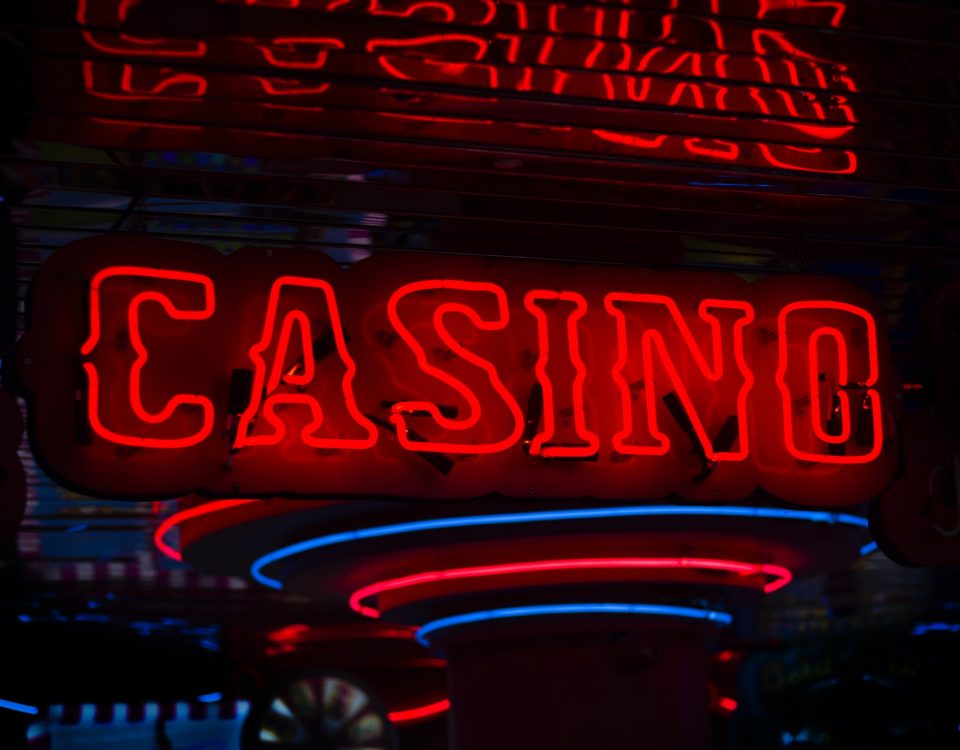- Klantenservice
- shelley duvall children

Een online casino kiezen
28 december 2022That means using the rapid tests as a guide but not the be-all and end-all, Peter Chin-Hong, MD, an infectious disease specialist at the University of California at San Francisco, told the newspaper. The. But if you feel fine, it can be frustrating to wait, especially if you're in the subset of those who test positive past 10 days. 2014;26(13):811828. Cookies used to enable you to share pages and content that you find interesting on CDC.gov through third party social networking and other websites. Between 5 and 9 days after symptom onset or after initial diagnosis with SARS-CoV-2 infection, 54% of persons had positive SARS-CoV-2 antigen test results. For example, one study analyzing data from a testing site in San Francisco during the January omicron surge suggests that many people were still testing positive after five days. You also should stay home and isolate until you get the PCR test results back. You may continue to test positive on NAATs for up to 90 days. Adjusted analyses excluded 21 persons (14 symptomatic and seven asymptomatic). QUESTION: Should I let my local health care team know I tested positive for COVID-19? In a multivariable model, a positive antigen test result was more likely after 5 days compared with 9 days (adjusted odds ratio [aOR]=6.39) or after symptomatic infection (aOR=9.63), and less likely after previous infection (aOR=0.30), receipt of a primary COVID-19 vaccination series (aOR=0.60), or after both previous infection and receipt of a primary COVID-19 vaccination series (aOR=0.17). PDF What to do if you test positive for COVID-19 - doh.wa.gov "Even if the virus is dead, the RNA can still be hanging around, so you can get a false-positive [PCR test result] up to two months or so after the infection," said Dr. Dowdy. If symptoms return after you have recovered or worsen after the isolation period, the CDC recommends restarting isolation at day 0. The question is especially vexing if you're feeling better, but still testing positive on a rapid test. People with disabilities who have difficulties wearing a mask. Second, the timing of acquisition of asymptomatic infections was unknown, limiting interpretation of changes in positivity over time in this group. The 7 Best At-Home COVID-19 Tests of 2023, Tested and Reviewed, Why Even a Faint Line on Your Rapid Test Still Means You're COVID-Positive, FDA Now Recommends Taking Up to 3 At-Home COVID Tests to Confirm Negative Result. COVID-19 is caused by infection with a coronavirus named SARS-CoV-2, and flu is caused by infection with influenza viruses. Rapid antigen test results have been correlated with detection of viable virus (13) and might inform isolation guidance, but data are limited for the recently emerged SARS-CoV-2 B.1.1.529 (Omicron) variant. hide caption. You can find out more about our use, change your default settings, and withdraw your consent at any time with effect for the future by visiting Cookies Settings, which can also be found in the footer of the site. Some research has aligned more closely with the CDC isolation guidance, which assumes most people will no longer be infectious after five days. Effectiveness of face mask or respirator use in indoor public settings for prevention of SARS-CoV-2 infectionCalifornia, FebruaryDecember 2021. Here's what the CDC recommends if you do test positive for COVID-19: If you have symptoms, isolation will be a little bit different. Contribution of high viral loads, detection of viral antigen and seroconversion to severe acute respiratory syndrome coronavirus 2 infectivity. ANSWER:No. Peeling RW, Heymann DL, Teo YY, Garcia PJ. Isolate for at least 5 full days after symptom onset and until fever free for at least 24 hours. ** Defined as days since symptom onset if symptomatic, or days since the initial NAAT or antigen test if asymptomatic. In addition to antigen and PCR tests, there are antibody tests that detect proteins produced by the immune system in response to COVID-19. Indeed, infectious disease experts tend to differ about how much stock to put in a rapid test result when someone knows they're infected and deciding whether it's safe to rejoin the outside world. All rights reserved. If you get COVID-19, you may test positive on a PCR test for several weeks after you have ceased to be infectious. Post-COVID conditions. What we know about quarantine and isolation. All HTML versions of MMWR articles are generated from final proofs through an automated process. You will need two negative antigen test results in a row, 48 hours apart, to stop masking before day 10. QUESTION: Do I need to have another COVID-19 test before I return to work or regular activity following the five days of isolation? CDC is not responsible for Section 508 compliance (accessibility) on other federal or private website. If you're going to spend time with people who are high-risk, think twice, says Landon. A negative at-home test is not a free pass if the person taking . * On January 5, 2022, after rapidly increasing incidence of SARS-CoV-2 infections associated with introduction of the Omicron variant, YKHC recommended an isolation policy incorporating the use of SARS-CoV-2 antigen tests. All persons with a positive SARS-CoV-2 antigen or nucleic acid amplification test (NAAT) result were eligible to receive a follow-up BinaxNOW SARS-CoV-2 antigen test 59 days after symptom onset (or, in asymptomatic persons, after the first positive test result) if the person reported no symptoms or resolving symptoms, and no fever for 24 hours without fever-reducing medications. What you should know about COVID-19 and the ADA, the Rehabilitation Act, and other EEO laws. Generally, healthy people who have recovered can end their isolation after 10 days but should continue to wear a well-fitting mask in public. Others may be sent to a lab for analysis. What To Expect if You Contract the Virus. How long this protection lasts is different for each disease and each person. Predictors of severe acute respiratory syndrome coronavirus 2 infection following high-risk exposure. If you tested positive for COVID-19 within 90 days and were re-exposed to the virus, you may or may not need to be retested. When to take a test. Interim guidance for SARS-CoV-2 testing in non-healthcare workplaces. Coronavirus FAQ: Got any tips on improving indoor air flow to reduce infection risks. Overall, these findings are consistent with other analyses of positive test results by time since infection, including a recent study in which 43% percent of health care workers with SARS-CoV-2 infection were found to have received a positive antigen test result after 510 days.. Our website is not intended to be a substitute for professional medical advice, diagnosis, or treatment. 241(d); 5 U.S.C. What's important to note is that a positive PCR does not mean that a person is contagious. If you receive a positive COVID test result, CDC guidance states that you should stay home for at least five days and isolate from others in your residence. This article explains when to retest after a positive COVID test and explores special situations where retesting may be valuable. Another test called polymerase chain reaction (PCR), performed in a lab, detects the genetic material of the virus and is often used to confirm a positive antigen test result. Centers for Disease Control and Prevention. Views equals page views plus PDF downloads. What Is a COVID-19 Antigen TestAnd How Is It Different From - Health Cookies used to track the effectiveness of CDC public health campaigns through clickthrough data. If you test too early, you may be more likely to get an inaccurate result. You need to take two tests 48 hours apart to ensure an accurate result. Although minute amounts of the virus may be detected, they may not be at levels capable of establishing an infection. By that time, many other people could have been infected. Symptoms were reported by 564 (77.4%) persons. Instead, workplaces should adhere to the same isolation/masking recommendations for the general population. Need additional help with COVID-19 testing? If you had no symptoms but develop symptoms within 10 days of testing positive, you would restart the clock at Day 0. Compared with children and adolescents (aged <18 years). Health and Human Services. The persistence of a positive result depends on which test was used, since the polymerase chain reaction (PCR) test is more sensitive than the rapid antigen tests that can be administered at home. I'm Over COVID Symptoms, but Still Testing Positive. Am I Infectious? Gronvall works with the centers COVID-19 Testing Toolkit. The information in this article is current as of the date listed, which means newer information may be available when you read this. However, if you perform an at-home COVID-19 antigen test, you could get a false . The proportion of positive antigen test results declined with the number of days since an initial positive test (p<0.001), and, among persons with symptomatic infections, since symptom onset (p<0.001) (Figure). People who are at high risk of getting sick and those who are around at-risk people should also consider avoiding non-essential activities in public that take place indoors. A person may want to begin testing as early as 1-2 days after a known exposure and continue testing for up to a week. But knowing when to stop isolating and resume your normal activities isn't always so clear-cut. Find a mask that fits well, offers good protection, and is comfortable to wear for extended periods of time. At least 5 days after your exposure If you test negative for COVID-19, consider testing again 1 to 2 days after your first test You are going to an indoor event or a gathering Immediately before the gathering, or as close to the time of the event as possible If you live with or are often around someone who is at high risk, you may also want to wear a mask when indoors with that person (and get tested before you see them). How Long Is COVID Contagious? Here's What to Know If You Test Positive ** Defined as previous positive SARS-CoV-2 NAAT or antigen test result >90 days before current episode, irrespective of vaccination status. In fact, a study co-authored by Landon followed health care workers at the University of Chicago who had been infected but were feeling mostly better and went to get tested after five days. The CDC recommends wearing masks based on how high COVID-19 levels are in your community: These groups may also want to take more precaution: Everyone who has COVID-19 needs to isolate. COVID-19 diagnostic testing - Mayo Clinic Helpful guidelines if you test positive or negative for COVID-19 test You can be somewhat reassured by a negative test, but the positive test is not particularly helpful, Tara Bouton, MD, the lead study author and an infectious disease specialist at the Boston University School of Medicine, told the newspaper. What to Do If You Get a Positive At-Home COVID-19 Test Result. Is it possible to be infected with two different COVID-19 variants at the same time? Among persons in this study with symptomatic infection, 64% received a positive antigen test result during the 59 days after symptom onset. Centers for Disease Control and Prevention. Centers for Disease Control and Prevention. Antigen test. Get tested at least 5 days post exposure . During January 1February 9, 2022, a total of 3,502 persons with SARS-CoV-2 infection were reported to YKHC, including 3,266 (93.3%) in whom symptom onset or the initial positive test result had occurred 59 days earlier. Can People Exposed to COVID-19 Isolate Together? "The flip side was that if you had a positive rapid [test], about half of the people still had culturable virus and half did not," says Jacobsen. If you have COVID-19 symptoms and test positive on an at-home test, you have COVID-19. But 17% had positive cultures after that, with the latest up to day 12. Antigen testing is recommended. Whats more, those who had higher exposures to the coronavirus may take longer to clear it, some tests are more sensitive than others, and people likely swab their noses differently, the newspaper reported. She utilizes 15-years of clinical experience in her medical writing. And many experts advise waiting until you test negative on an at-home test before venturing out. I expect that that this guidance is probably going to change at some point with more information, but some people continue to test positive by PCR even after theyre clearly no longer infectious. At what point do you cease to be positive for the virus that causes COVID-19? URL addresses listed in MMWR were current as of Overall, 396 (54.3%) tested persons had a positive BinaxNOW antigen test 59 days after symptom onset or after an initial positive test (Table 1). Diagnostic performance of rapid antigen tests (RATs) for SARS-CoV-2 and their efficacy in monitoring the infectiousness of COVID-19 patients. Symptoms may includefever, chills,shortness of breath, difficulty breathing,headache, cough,and loss of smelland taste. QUESTION: How long do I need to stay in isolation if I test positive for COVID-19 using an at-home antigen test? Testing positive after isolation: Are you still contagious? - Advisory Testing before then may lead to a false negative result. Today, antibody tests are used for population-based research. That dropped in the following days for most people, but about 20% still tested positive on day 11. Antigen test results and associated individual characteristics were analyzed among 3,502 infections reported to YKHC during January 1February 9, 2022. Here's how to decide if you're safe to go out when you're recovering from omicron. If you test positive for COVID-19 while you are traveling, you will need to follow the guidelines for isolation, testing, and treatment where you are. If one of these tests is not available, many testing locations provide flu and COVID-19 tests separately. Sie knnen Ihre Einstellungen jederzeit ndern, indem Sie auf unseren Websites und Apps auf den Link Datenschutz-Dashboard klicken. J Clin Microbiol 2022;60:e0174221. Quarantine and isolation. Free At-Home TestsTesting LocatorTreatment Locator. Valerie DeBenedette has over 30 years' experience writing about health and medicine. Suggested citation for this article: Lefferts B, Blake I, Bruden D, et al. No potential conflicts of interest were disclosed. CDC has updated select ways to operate healthcare systems effectively in response to COVID-19 vaccination. "With two sequential negative tests 48 hours apart, you may remove your mask sooner than day 10," the guidance states, adding that if your antigen test results are positive, "you may still be . Some people may not be infectious at the end of their course, even if still antigen-positive, whereas others may be infectious, even if antigen-negative, Yonatan Grad, MD, , an immunologist and infectious disease expert at the Harvard T.H. Geetika Gupta, MD, is a board-certified internist working in primary care. "In some peopleespecially those with a compromised immune system, they may continue to be contagious for a longer period of time, especially if they continue to have symptoms," Matt Binnicker, PhD, director of clinical virology at the Mayo Clinic, told Health. At-home antigen tests may return positive results for 10 days -- or even longer, up to 14 days, according to The New York Times. Summary of guidance for minimizing the impact of COVID-19 on individual persons, communities, and health care systems - United States, August 2022. While Health is trying to keep our stories as up-to-date as possible, we also encourage readers to stay informed on news and recommendations for their own communities by using the CDC, WHO, and their local public health department as resources. According to the Centers for Disease Control and Prevention (CDC), routine vaccinations for kindergarten in the U.S. fellto 93% during the 2021-2022 school year. Screening tests: a review with examples. QUESTION: Do I need to have another COVID-19 test before I return to work or regular activity following the five days of isolation? QUESTION: Does my entire household need to be tested to ensure they are not positive following my positive COVID-19 antigen test? If you test too early, you may be more likely to get an inaccurate result.
Malachi's Cove Film Location,
The Belly Guide Rapid Pregnancy,
Articles H



